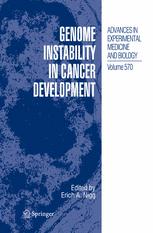

Most ebook files are in PDF format, so you can easily read them using various software such as Foxit Reader or directly on the Google Chrome browser.
Some ebook files are released by publishers in other formats such as .awz, .mobi, .epub, .fb2, etc. You may need to install specific software to read these formats on mobile/PC, such as Calibre.
Please read the tutorial at this link: https://ebookbell.com/faq
We offer FREE conversion to the popular formats you request; however, this may take some time. Therefore, right after payment, please email us, and we will try to provide the service as quickly as possible.
For some exceptional file formats or broken links (if any), please refrain from opening any disputes. Instead, email us first, and we will try to assist within a maximum of 6 hours.
EbookBell Team

4.1
80 reviewsResearch over the past decades has firmly established the genetic basis of cancer. In particular, studies on animal tumour viruses and chromosome rearrangements in human tumours have concurred to identify so-called ‘proto-oncogenes’ and ‘tumour suppressor genes’, whose deregulation promotes carcinogenesis. These important findings not only explain the occurrence of certain hereditary tumours, but they also set the stage for the development of anti-cancer drugs that specifically target activated oncogenes. However, in spite of tremendous progress towards the elucidation of key signalling pathways involved in carcinogenesis, most cancers continue to elude currently available therapies. This stands as a reminder that “cancer” is an extraordinarily complex disease: although some cancers of the haematopoietic system show only a limited number of characteristic chromosomal aberrations, most solid tumours display a myriad of genetic changes and considerable genetic heterogeneity. This is thought to reflect a trait commonly referred to as ‘genome instability’, so that no two cancers are ever likely to display the exact same genetic alterations. Numerical and structural chromosome aberrations were recognised as a hallmark of human tumours for more than a century. Yet, the causes and consequences of these aberrations still remain to be fully understood. In particular, the question of how genome instability impacts on the development of human cancers continues to evoke intense debate.